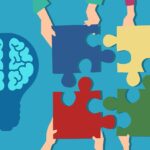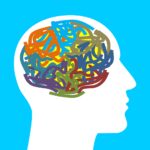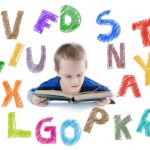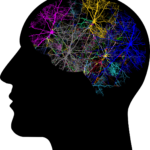Learning Disabilities
Depression is a common mood disorder that many of us are all too familiar with. Some have experienced it themselves, others have watched family members or close friends suffer from it, and others have suspected that students who they work with are demonstrating depressive symptoms. In this course, you will learn about depression, where it comes from, what it looks like, how to identify it, ways to help and so much more. This course will enlighten and educate you and hopefully make you a more sensitive educator. The information learned in this course will help anyone who interacts with children and adolescents. The course is relevant to all who work in schools and with children of all ages in all settings.
This course was developed for school administrators, regular and special education teachers (grades K-12 and ages 5 to 21),special area teachers, school psychologists, school counselors, guidance counselors, social workers, speech and language therapists and pathologists and occupational and physical therapists.
ON-LINE (3 credits/45 hours) In-Service Credit only | $250.00$280.00 Max: Min: 1 Step: 1 Add to cart | |
Course Description: Cognitive Behavioral Therapy is a research based intervention that has been proven to improve the mental health of children, adolescents and adults. Mental health is increasingly becoming a crucial component of school systems, as children who are suffering emotionally are not available to learn. Additionally, teachers who are overly stressed, anxious and unhappy will not be effective educators. It is therefore extremely important for educators, therapists, administrators, and all school employees to become better advocates of mental health and to learn some basic techniques. In this course, we will learn about some of those techniques. These important concepts will prove not only relevant for your work with your students but also your general mindset and functioning as an educator. This course is relevant to all who work in schools and with children of all ages in all settings.
This course was developed for school administrators, regular and special education teachers (grades K-12 and ages 5 to 21),special area teachers, school psychologists, school counselors, guidance counselors, social workers, speech and language therapists and pathologists and occupational and physical therapists.
Course Objectives
Participants will learn about and research various concepts in cognitive behavioral therapy and how they can be applied to the school setting.
ON-LINE (3 credits/45 hours) In-Service Credit only | $250.00$280.00 Max: Min: 1 Step: 1 Add to cart | |
Augmentative and Alternative Communication, or AAC, is a term that’s used to describe various methods of communication that can help people who are unable to use verbal speech to communicate. AAC methods vary and must be personalized to meet each individual’s needs. AAC gives our students with communication difficulties a voice, allowing them to be active participants within all environments. In this course, common AAC devices and applications will be discussed, including TOUCHChat, Proloquo2Go, NOVAChat and LAMP Words for Life. Participants will develop an understanding of Core and Fringe vocabulary. In addition, Partner Augmented Input (PAI) will outlined. At the conclusion of this course, participants will have an understanding by which to utilize their students’ AAC devices into daily classroom and therapeutic practices.
ON-LINE (3 credits/45 hours) in-service only | $250.00$280.00 Max: Min: 1 Step: 1 Add to cart | |
An increasing number of special education students are receiving instruction in the general education classroom, k-12th grades. This course offers definitions, information on diagnoses, observable traits and instructional/behavioral strategies to support each learner. You’ll be
better prepared to handle the most frustrating aspects of teaching a child with a learning difference, more prepared to maximize each student’s strengths, better equipped to meet the multitude of challenges ahead and manage change in education. Suitable all eductors K – 12.
ON-LINE (3 Credits / 45 hours) in-service credit only
| $250.00$280.00 Max: Min: 1 Step: 1 Add to cart | |
You will develop an understanding of how it feels to have a learning disability. By understanding how a learning disabled student feels, you will be able to teach them differently. You will learn strategies and will be expected to understand the psychology of a learning disability, its definition and causes. You will develop an appreciation for the approaches in educational and employment settings which support individuals with learning disorders, the impact that individuals with learning disorders have on their friends and family; and widen your empathy and respect for individuals with learning disorders regarding their strengths and weaknesses. Suitable all educators K-12.
NOTE: This instructor also offers an additional course on this subject Learning Disabilities/Strategies to Help Guide the Learning Disabled Student to Success. This course was designed to provide additonal information and direction beyond the ABC’s course.
ON-LINE (3 Credits / 45 hours) In-service Credit only
| $250.00$280.00 Max: Min: 1 Step: 1 Add to cart | |
In this course teachers will learn how to create a POSITIVE BEHAVIOR INTERVENTION PLAN for specific students as well as the classroom as a whole, ensuring success for their students.
There are many ways to define or explain the concept of POSITIVE BEHAVIOR INTERVENTION. Some of the most common ways include:
The application of behavior analysis and systems change perspectives within the context of person-centered values to the intensely social problems created by behaviors such as self-injury, aggression, property destruction, pica, defiance, and disruption A dynamic, problem-solving process involving goal identification, information gathering, hypothesis development, support plan design, implementation, and monitoring An approach that blends values about the rights of people with disabilities with a practical science about how learning and behavior change occur
A comprehensive Positive Behavior Support Plan includes a range of intervention strategies that are designed to prevent the problem behavior while teaching socially appropriate alternative behaviors. The goal is an enhanced quality of life for individuals involved and their support providers in a variety of settings.
In this course teachers will learn how to create a POSITIVE BEHAVIOR INTERVENTION PLAN for specific students as well as the classroom as a whole, ensuring success for their students.
ON-LINE (3 Credits / 45 hours) in-service credit only
| $250.00$280.00 Max: Min: 1 Step: 1 Add to cart | |
(Online, In-Service, 3 credits)
Instructor: Melissa Wickers mwickersliips@gmail.com
Course Description: This course is designed to enhance educators' understanding and implementation of effective strategies and practices in special education. Through a combination of readings, multimedia resources, and written reflections, participants will explore various aspects of special education and develop practical skills to support diverse learners in inclusive settings.
Course Objectives:
1. To deepen understanding of special education laws, policies, and frameworks.
2. To explore evidence-based practices for supporting students with diverse learning needs.
3. To develop skills in creating inclusive learning environments.
4. To reflect on personal beliefs and biases related to special education.
5. To enhance collaboration with families, colleagues, and other stakeholders in the special
education process. | $250.00$280.00 Max: Min: 1 Step: 1 Add to cart | |
Childhood tics are quite common and are reported as occurring in approximately 4 to 18% of school aged children. The purpose of this course is to provide information about Tourette Syndrome (TS) and how school aged children can be supported in school. The course will cover both information about the disorder as well as strategies for supporting and instructing students with TS. This course is appropriate for all educators K-12, ELA, Social Studies, Math, Science, ESL, Special Education, Art and Music, Physical Education, School Psychologists, Guidance Counselors ,Social Workers Speech/Language teachers and therapists, OT & PT’s. Common Core Learning Standards are addressed.
Course Objectives:
1. Participants will research the essential features of Tourette’s and related disorders
2. Participants will consider the implication and effects of TS on classroom performance and school attendance
3. Participants will identify strategies and supports for students with TS and related symptoms
4. Participants will learn how to create a plan to support their students
ON-LINE (3 Credits / 45 hours) in-service credit only | $250.00$280.00 Max: Min: 1 Step: 1 Add to cart | |
This course will provide participants with an overview of various anxiety disorders with a focus on: definitions, prevalence, diagnosis, and treatment. Emphasis will be placed on recognition of the behaviors, signs and symptoms that may be observed in the classroom and what accommodations and strategies teachers may use to support their students. This course is appropriate for all educators K-12, ELA, Social Studies, Math, Science, ESL, Special Education, Art and Music, Physical Education, School Psychologists, Guidance Counselors ,Social Workers Speech/Language teachers and therapists, OT & PT’s. Common Core Learning Standards are addressed. This course is important for ALL educators!
ON-LINE (3 Credits / 45 hours) in-service credit only | $250.00$280.00 Max: Min: 1 Step: 1 Add to cart | |
Obsessive Compulsive Disorder (OCD) affects approximately one in 200 children. That means that approximately two million children in the U.S. currently have this illness and throughout the course of your career you are likely to have children struggling with this disorder in your classroom. This course will provide participants with the opportunity to learn the difference between obsessions and compulsions, the diagnostic criteria, the tell tale signs of the disorder that may be observed in the classroom, and how to support and accommodate students who may have OCD or OCD tendencies. This course is appropriate for all educators K-12, ELA, Social Studies, Math, Science, ESL, Special Education, Art and Music, Physical Education, School Psychologists, Guidance Counselors ,Social Workers Speech/Language teachers and therapists, OT & PT’s. Common Core Learning Standards are addressed.
ON-LINE (3 Credits / 45 hours) in-service credit only | $250.00$280.00 Max: Min: 1 Step: 1 Add to cart | |
Classes to start Summer 7/1/25 Instructor: Randi Miller Course Description This 3 credit inservice course explores the most pressing issues affecting K-12 education today. Through readings, discussions, and practical assignments, educators will gain insights into current trends and controversies, develop strategies to address these challenges, and create actionable plans to improve their schools and classrooms. This course was developed for general, special education and special area teachers, School administrators, PPS staff (school counselors, psychologists, social workers) and related service providers (speech therapists, OTs and PTs). | $250.00$280.00 Max: Min: 1 Step: 1 Add to cart | |
Classes to start Summer 7/1/25 Instructor: Randi Miller Course Description This 3 credit inservice course explores the transformative role of artificial intelligence (AI) in education and school support services. Teachers, school administrators, and support professionals will examine how AI can enhance teaching, learning, student services, and administrative efficiency. The course will provide a balanced perspective on the benefits, challenges, and ethical considerations of AI in schools. Participants will engage with AI-powered tools, analyze case studies, and develop implementation strategies tailored to their roles. Through structured assignments, participants will explore AI’s impact on instructional strategies, personalized learning, student assessment, mental health support, special education services, and school operations. This course will equip education professionals with the knowledge and skills to harness AI effectively while maintaining ethical and inclusive practices. This course was developed for general, special education and special area teachers, School administrators, PPS staff (school counselors, psychologists, social workers) and related service providers (speech therapists, OTs and PTs). | $250.00$280.00 Max: Min: 1 Step: 1 Add to cart | |
(3 Credits / 45 hours) in-service credit only ON-LINE
Instructor: Randi B. Miller Rmillerliips@gmail.com Course Description:
Learning, thinking, listening, processing information, communicating and relationships with others are best when one is in a calm and regulated state.
Regulation in others, starts with our own skills of self-regulation. Then through the process of co-regulation, calm is shared and modeled which in turn develops and fosters the ability for students to self-regulate.
This course will provide participants a framework to understand calm and regulation through the brain/body/behavior connection. Participants will develop a working understanding of the terms: regulation, dysregulation, and co-regulation. The course will also provide resources and materials to help participants implement strategies and teaching procedures to create calm. This course is appropriate for all educators K-12, ELA, Social Studies, Math, Science, ESL, Special Education, Art and Music, Physical Education, School Psychologists, Guidance Counselors ,Social Workers Speech/Language teachers and therapists, OT & PT’s. | $250.00$280.00 Max: Min: 1 Step: 1 Add to cart | |
(3 credits/45 hours)
Instructor: Randi Miller rmillerliips@gmail.com
Selective Mutism is an anxiety disorder which significantly affects social/pragmatic language skills, social interactions, relationships as well as school performance. This course will focus on the development of SM and co-existing conditions (such as social anxiety). It will provide a review of evidence based practices for those working with students in a school setting students with SM (or those who may display) characteristics of Selective Mutism.
Course objectives;
After completing the coursework, participants will:
Have knowledge of the diagnostic criteria and characteristics of SM and related disorders
Have a foundation of information to support a student with SM in and out of the classroom.
Be able to work with peers to support their classmate with SM
Create/share resources for parents and colleagues
This course is relevant to all who work in schools with children ages 5-21 in both regular and special education settings. This course has been designed for all school administrators, regular and special education teachers (grades K-12 and ages 5 to 21), special area teachers (gym, art, music, technology) school psychologists, school counselors, guidance counselors, social workers, speech and language therapists or speech pathologists and occupational or physical therapists. | $250.00$280.00 Max: Min: 1 Step: 1 Add to cart | |
Approximately 10 percent of the school population (or 9-13 million children) struggle with and demonstrate behaviors associated with mental health problems, ASD, developmental and learning disabilities. Additionally, on the rise, are students who struggle day to day from the effects of trauma or bullying. In the classroom, children with behavioral challenges often fail in school, waste time in detention or suspension, fall behind academically or never master the skills they need to make adequate progress. All the while, educators and all school-based professionals are under pressure to show progress for every student every year.
This course is relevant to all who work in schools with children ages 5-21 in both regular and special education settings. This course has been designed for all school administrators, regular and special education teachers (grades K-12 and ages 5 to 21),special area teachers (gym, art, music, technology) school psychologists, school counselors, guidance counselors, social workers, speech and language therapists or speech pathologists and occupational or physical therapists.
Course of objectives:
1. Participants will learn the basics of behavior
2. Participants will gain an understanding of the functions of behavior and how to use this methodology to understand behavior
3. Participants will synthesize their learning in order to help them manage the misbehavior of even the most challenging of students
4. Participants will apply behavior principles in order to create systems to motivate and get more out of their students
ON-LINE (3 Credits / 45 hours) in-service credit only | $250.00$280.00 Max: Min: 1 Step: 1 Add to cart | |
Course Description:
This course will focus on how with the number of students with learning disabilities on the rise, how a solution had to be found. As educators, we are confronted with the challenges of educating all students, even the ones with numerous learning delays and/or disabilities. Educators will discuss different ways in which they are required to find lessons in which to meet the needs of all learners. This course will explore co-teaching strategies that will enhance student learning. We will also investigate various learning strategies that meet the needs of students with various learning needs. This course is a must for all educators levels K-12.
ON-LINE (3 credits/45 hours) in-service credit only
Instructor: Kim Kittredge kkittredgeliips@gmail.com
| $250.00$280.00 Max: Min: 1 Step: 1 Add to cart | |
Autism affects 1 in 68 children in the United States. As educators, we are confronted with the challenges of educating students with Autism and social disorders, while managing behaviors within the classroom. This course will explore communicative strategies useful for focusing, learning material, managing behaviors and socializing with peers. Alternative and augmentative means of communication will be discussed. At the conclusion of this class, participants will gain useful tools to maximize communication for all students within the classroom and therapy environments. A must for all Educators!
ON-LINE (3 credits/45 hours) in-service only | $250.00$280.00 Max: Min: 1 Step: 1 Add to cart | |
Instructor: Gayle Meinkes-Lumia – gaylelumia@yahoo.com
(3 Credits/45 Hours) – In-Service Credit
Course Description: In order for true learning to occur, safety must be at the forefront. Ensuring an environment that is emotionally manageable for our learners requires a deep investigation of the ways in which students operate on many levels. This course will provide the opportunities for participants to instruct their students on the ways in which to understand and manage their emotions in order to be successful in every class. Participants will learn the seven strategies in which to manage emotions for their learners, including: identifying and reducing triggers, tuning into physical symptoms, relay your own personal story, engage in positive self-talk, make appropriate choices, look for positive emotions, seek out help whenever possible. In the end, our learners will be able to soar to new heights. **A must for K-12 educators in all disciplines!! | $250.00$280.00 Max: Min: 1 Step: 1 Add to cart | |
Winter 2025 – December 1,2,3,4,5,8,9,10,11,12
Instructor: Gayle Meinkes-Lumia- gaylelumia@yahoo.com
There is no single, correct way for a child’s brain to function. All individuals process information in diverse ways. Someone who is neurotypical develops brain functions, like social and organizational skills at similar rates as others their age. Neurodivergent individuals process information in ways that are not typical for their age, simply meaning that the brain works differently than what is considered typical. About 15% to 20% of the world’s population shows signs of neurodivergence. It is the educator’s responsibility to instruct all individuals in their classes with care and with sensitivity. This course will enable educators to have an awareness of the symptoms of neurodivergence and subsequently find the modalities that make all students successful. Topics covered include anxiety, sensitivity, managing positive outcomes, and problem solving.
*A must for K-12 educators!!! | $250.00$280.00 Max: Min: 1 Step: 1 Add to cart | |
Research continues to confirm that we can teach students with learning disabilities to “learn how to learn.” We can put them into a position to understand and value their own education. Because everyone learns differently, helping children reach their maximum potential should be the goal in every classroom. A variety of tips and tools have been developed throughout this course to help both teachers and parents provide the most supportive and successful learning environment. This course will provide a wealth of information and a comprehensive overview of evidence-based remediation and accommodation teaching strategies. This course will include: the visible signs of learning disorders; effective teaching and accommodation strategies; most recent technology, diagnostic criteria; and self-esteem. This course applies to all Educators K-12.
NOTE: This is a separate and independent course from ABC’s of Learning Disabilities and Beyond – Resources for Educators . This course was designed to provide additonal information and direction beyond the ABC’s course.
ON-LINE (3 Credits / 45 hours) in-service credit only
| $250.00$280.00 Max: Min: 1 Step: 1 Add to cart | |
Course Description: This course is designed to help educators gain valuable insight into supporting children diagnosed with ADHD. The course provides unique and practical perspectives into managing ADHD with confidence in your classroom. The course covers:
| $250.00$280.00 Max: Min: 1 Step: 1 Add to cart | |
Instructor: Gayle Meinkes-Lumia – gaylelumia@yahoo.com
In-Service Course – 3 Credits – 45 Hours
Course Description: Our special education students require our utmost care and attention in their learning. Providing unique types of instruction that engage our population is tantamount to their success. Within this course, participants will learn effective strategies needed for students with disabilities. Specially designed instruction and the ways to implement will be addressed – including: student accommodations, diverse learning, various differentiated techniques, and unique learning environments for supporting students. Distinct instruction on creating modifications will be given as well as achieving the utmost proficiency in IEP goals and objectives within the classroom environment.
*A must for K-12 educators | $250.00$280.00 Max: Min: 1 Step: 1 Add to cart | |
What is Pragmatics? What is Social Communication Pragmatic Disorder? How does this affect students and students with Autism? Many students struggle with this aspect of communication. This course will review that and much more. This course will review Pragmatics and social language. Activities and strategies to help your students improve their social language skills will be provided. This course is a must for all educators!
Topics include: What is Pragmatics? What is Social Communication Pragmatic Disorder? How does this affect students with Autism? Non-verbal and Verbal communication, parts of a conversation, Activities for the classroom teacher and more! | $250.00$280.00 Max: Min: 1 Step: 1 Add to cart | |
Diving deeper than Wh questioning techniques, this course will provide teachers of all grade levels strategies to increase student engagement by incorporating various questioning strategies into their daily lessons. How to differentiate questions to engage all learners, including ELLs, G &T and Students with Disabilities will be examined. | $250.00$280.00 Max: Min: 1 Step: 1 Add to cart | |
Students with special needs dominate all classrooms today. Teachers must learn to successfully connect with all types of learners, ranging from those with emotional needs to those with gifted needs. With a wide variety of resources, teachers can effectively master the success of all.
Within this course, participants will soar to new heights within their classrooms. They will:
· learn the difference between the various learners in their classroom
· comprehend the various learning styles that these respective individuals need
· hone in on the vocabulary of special needs’ assessment
· challenge their students and themselves to a myriad of fiction and non-fiction topics in terms of special needs
· comprehend various analytical skills and higher-order thinking skills that students need for success
Overall, teachers will walk away with the tools they need for success.
*A must for all educators!
ON-LINE (3 credits/45 hours) in-service credit only | $250.00$280.00 Max: Min: 1 Step: 1 Add to cart | |
An increasing amount of students are diagnosed with speech and language disorders. These disorders can affect a student’s ability to learn and socialize within the school setting. In this course you will learn the terms articulation disorder, fluency, apraxia, voice disorder, and selective mutism and how these disorders present in the classroom. You will learn strategies to use when working with speech impaired students. In addition, you will have an understanding of the impact these disorders have on the social and emotional well-being of our students. This class is part 1 of 2 classes. Both classes can be taken independently of each other. Recommended for ALL Educators!
ON-LINE (3 credits/45 hours) in-service only | $250.00$280.00 Max: Min: 1 Step: 1 Add to cart | |
Language is the human capacity for acquiring and using complex systems of communication. Between 6 and 8 million people in the United States have language impairments. Language impairment in a student directly affects his academic performance and ability to socialize with peers. In this course, receptive language impairment, expressive language impairment, auditory processing disorder, and aphasia will be defined and discussed. Classroom strategies will be reviewed. In addition, the emotional effects of language impairment on school-age children will be analyzed. This class is the second class in the series. Part 1 is not a prerequisite for part 2. Both classes can be taken independently of each other. Recommended for ALL Educators!
ON-LINE (3 credits/45 hours) in-service only | $250.00$280.00 Max: Min: 1 Step: 1 Add to cart | |
This class focuses on the identification of students in regular/special education education classrooms that may have ADD/ADHD, the difference between the two disorders, and how to structure the classroom environment to allow these students to reach their maximum potential. Identification of the most commonly used medical interventions and the impact they may have in the school setting, how to help build-up self-esteem and peer relationships, practical classroom interventions aimed at helping these students to access the curriculum, behavior modification strategies that promote success, and Creating a classroom environment that teaches to all learning styles. Suitable for all educators K-12.
ON-LINE (3 Credits / 45 hours) in-service credit only
| $250.00$280.00 Max: Min: 1 Step: 1 Add to cart | |
This course will help educators transform their classrooms into a positive, supportive space where every student feels motivated to take on challenges without fear of failure. Students avoid tasks for many reasons such as perfectionism, anxiety, or past setbacks. This course will give educators the tools to turn those fears around. They’ll explore effective classroom management techniques, positive reinforcement strategies, and creative incentives that encourage active participation and persistence. Through engaging activities and real-world examples, they'll learn how to foster a growth mindset, celebrate progress over perfection, and create a classroom culture where students feel safe to try, fail, and try again. By the end, educators will be equipped with a toolbox of strategies to help even the most resistant learners embrace their academic journey with confidence and enthusiasm. | $250.00$280.00 Max: Min: 1 Step: 1 Add to cart |



















